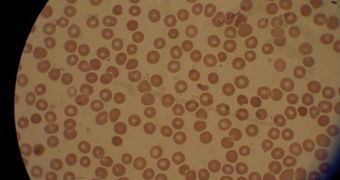Malaria is one of the conditions that have been completely eradicated in civilized countries, mostly through governmental efforts and investments in vaccination campaigns. But the condition may be on the rise again, as globalization permits more and more people to travel around the world on a daily basis. A new study has revealed that Southeast Asia, one of the most popular destinations to date, is currently experiencing a surge in malaria cases. But people here are sick with a form of the disease that does not respond to conventional medication like other strains do.
In other words, to put it simply, the disease is becoming increasingly resistant to everything we get to throw at it. The situation is bound to get even worse over the years, as natural selection would clearly benefit the malaria strains that are more adapted to surviving. The alarming conclusions were reported at the meeting of the American Society of Tropical Medicine and Hygiene, on November 19. A series of urgent measures needs to be taken immediately, the science team says, both in regards to the evolution of the disease itself, and also as far as mosquitoes are concerned, which is the condition's primary mode of spreading.
Cases of the disease that were resistant to the usual vaccines – featuring the drug artemisinim – appeared at a few designated locations in Cambodia over the past several years. But the new investigation, conducted this year, shows that, now, cases exist in Vietnam and in two spots along the Burma border, where Thailand and China meet. “Things are changing. There’s no doubt the signs are concerning,” Robert Newman says, quoted by Wired. He is the director of the Global Malaria Program, with the World Health Organization (WHO), in Geneva, Switzerland.
According to preliminary analyses, it would seem that genetic modifications in the pathogen agent itself are the main triggers of its increasing resilience to drugs. Newman also reveals that people taking artemisinim to cure fever that is not inflicted by malaria risk a much higher chance than average individuals of contracting and developing the condition, as their immune systems will no longer be able to keep things in check. The chemical used to treat malaria is extracted from the sweet wormwood bush, which has been in use among the local Asian populations for more than 2,000 years.

 14 DAY TRIAL //
14 DAY TRIAL //